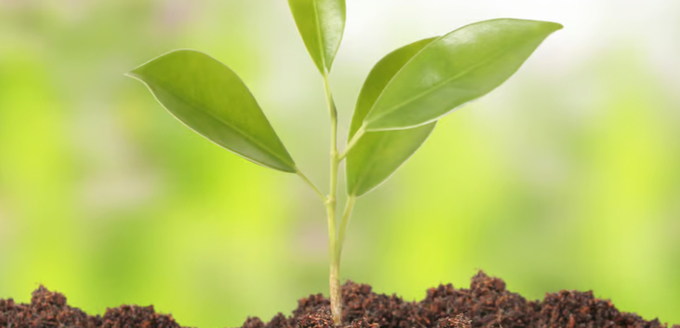June 20, 2025 | 03:35 GMT +7
June 20, 2025 | 03:35 GMT +7
Hotline: 0913.378.918
June 20, 2025 | 03:35 GMT +7
Hotline: 0913.378.918
Now, scientists at the University of Texas at Austin have developed a “smart soil” that can keep plants better hydrated and provide a controlled release of nutrients. In tests it drastically improved crop growth while using far less water.

A new "smart soil" infused with hydrogel allows crops to grow larger with less water.
It’s been estimated that around 70% of the world’s freshwater usage goes towards agriculture. That of course means that in areas where water is more scarce it can be hard to grow crops and feed populations, so scientists are investigating ways to boost efficiency.
Building on earlier work, the new study marks a good step in that direction. The soil gets its “smart” moniker thanks to the addition of a specially formulated hydrogel, which works to absorb more water vapor from the air overnight, then releasing it to the plants’ roots during the day. Incorporating calcium chloride into the hydrogel also provides a slow release of this vital nutrient.
The team tested the new smart soil in lab experiments, growing plants in 10 grams of soil, with some including 0.1 g of hydrogel. A day/night cycle was simulated, with 12 hours of darkness at 25 °C (77 °F) and either 60% or 90% relative humidity, followed by 12 hours of simulated sunlight at 35 °C (95 °F) and 30% humidity.
Sure enough, plants growing in the hydrogel soil showed a 138% boost to their stem length, compared to the control group. Importantly, the hydrogel-grown plants achieved this even while requiring 40% less direct watering.
“The global water scarcity coupled with a growing population has an immediate impact on food security,” said Guihua Yu, corresponding author of the study. “This new class of hydrogels offers a promising solution to meet the pressing needs of water scarcity and efficient nutrient uptake in modern sustainable agriculture.”
In future work, the team plans to try incorporating other types of fertilizers, and conducting longer field experiments.
The research was published in the journal ACS Materials Letters.
newatlas

(VAN) Poultry production in Poland, which has only started recovering from devastating bird flu outbreaks earlier this year, has been hit by a series of outbreaks of Newcastle disease, with the veterinary situation deteriorating rapidly.

(VAN) Extensive licensing requirements raise concerns about intellectual property theft.

(VAN) As of Friday, a salmonella outbreak linked to a California egg producer had sickened at least 79 people. Of the infected people, 21 hospitalizations were reported, U.S. health officials said.

(VAN) With the war ongoing, many Ukrainian farmers and rural farming families face limited access to their land due to mines and lack the financial resources to purchase needed agricultural inputs.

(VAN) Vikas Rambal has quietly built a $5 billion business empire in manufacturing, property and solar, and catapulted onto the Rich List.

(VAN) Available cropland now at less than five percent, according to latest geospatial assessment from FAO and UNOSAT.

(VAN) Alt Carbon has raised $12 million in a seed round as it plans to scale its carbon dioxide removal work in the South Asian nation.